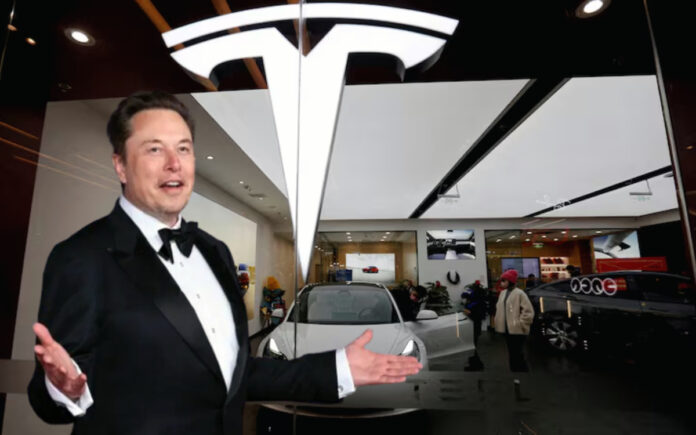Beijing: According to the state-backed China Daily newspaper, Elon Musk proposed the testing of Tesla’s advanced driver-assistance package in China by introducing it in robotaxis during his recent visit to the country.
Chinese officials reportedly expressed their support for Tesla’s endeavor, welcoming the company to conduct robotaxi tests in China with hopes of setting a positive example. However, they did not immediately grant approval for the widespread use of Tesla’s Full Self-Driving (FSD) functions.
Before the full rollout of FSD capabilities, Tesla needs approval to collect and transfer data necessary for training its driver-assistance features. While this matter wasn’t extensively discussed during Musk’s visit, sources suggest that Tesla is seeking to apply for robotaxi tests in Shanghai, where its largest global factory is located.
Also Read | NHL Draft 2024 Set to Make History at Las Vegas’ Sphere
Both Tesla and the Shanghai city government have yet to comment on the report.
Elon Musk’s visit to Beijing last month aimed to discuss the rollout of FSD and the possibility of securing government approvals for data transfer overseas, crucial for the development of autonomous vehicles. FSD, introduced in 2020, offers advanced features such as self-parking, auto lane changes, and traffic navigation.
During Musk’s trip, Tesla received a significant endorsement from a top Chinese auto association regarding data-security compliance for its Model 3 and Y cars. This endorsement could potentially allow Tesla access to regions of China previously restricted. Additionally, Tesla reached an agreement with Baidu to utilize the tech giant’s mapping license for data collection on China’s roads, seen as a step toward FSD rollout in China.
Also Read | Apple Unveils Exciting Lineup: iPad Pro M4 with OLED Display, New iPad Air, and Pencil Pro
However, the China Daily, citing a source close to Baidu, clarified that the deal aimed to enhance the accuracy of Baidu’s maps provided to Tesla and did not directly relate to FSD.
As Musk shifts focus from affordable electric cars to autonomous driving software and robotaxis, Tesla has hinted at developing a “purpose-built robotaxi product” with a revolutionary manufacturing process, although no timeline has been disclosed.
While China remains at the forefront of self-driving car development, with companies like Baidu and Toyota-backed Pony.ai launching robotaxi services in select cities, Tesla’s potential entry into the market could further accelerate advancements in autonomous technology.



